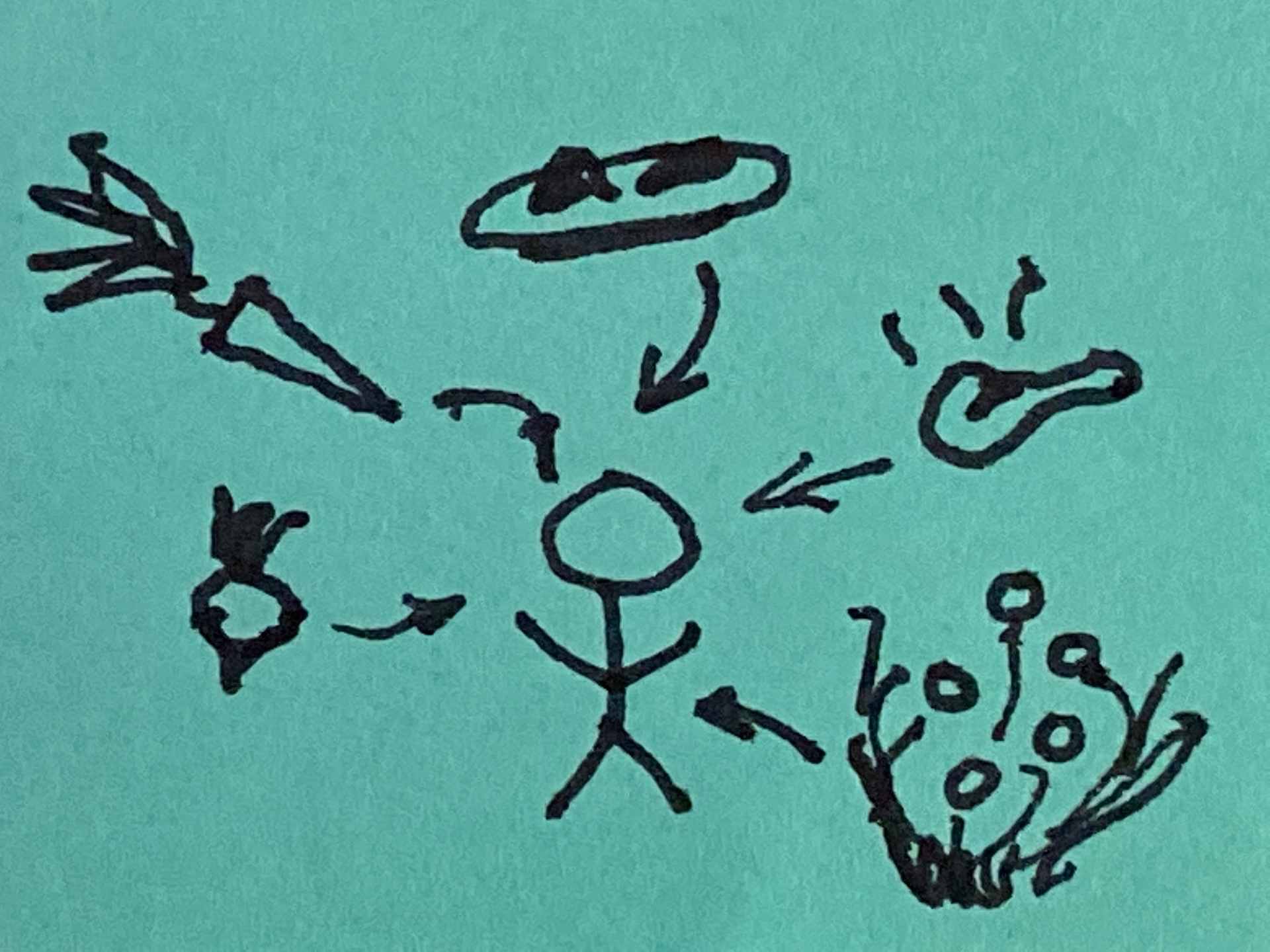Sense of Taste
Enliven your experience by continually refining your sense of taste.

according to Artist-Poet-Scientists, you need to develop your senses in order to have richer, more accurate experiences. Your basic five senses are the place to start.
Our senses are the source of our experience, but more often than not, we eat and drink without tasting, and we neglect the subtle sense of flavor that can be a source of joy in life.
-
Your senses are your source of experience. Leonardo DaVinci was well aware of this and tried to refine all his senses.
-
One of the big functions of taste is to detect toxins in our food. For that reason, we have a lot of receptors tuned to bitter tastes, but we also can detect sweet, sour, salty and umami tastes.
-
The following ideas for improving your sense of taste come from How To Think Like Leonard Da Vinci by Michael J. Gelb:
- develop comparative tasting
- explore wine tasting
-
Taste is a complicated sensation, and in some ways is already multi-modal—Multi-Modal Senses. You’ve probably heard that smell plays a significant roll in tasting, but the look of food, the texture of food (how it feels), and hot/cold sensations also contribute to our sense of taste.
-
There’s even a whole “temporal profile” that food scientists describe for particular foods, describing how the taste changes at different moments in tasting. For example, before the food enters your mouth, you smell it. In wine tasting, that’s referred to as the “bouquet” or “the nose” of the wine. Once it enters your mouth, you get combined senses of taste, smell, and various felt sensations like heat or cold and texture, even chewiness. After your swallow, there’s the “finish” or “aftertaste.” So taste is a complicated sensory experience.
-
In order to describe your taste sensations, you may need to learn some new words—Vocabulary. Wine tasters have developed a whole set of terms that help describe the subtle tastes they’re experiencing. While it may seem a bit pretentious to talk about your food or wine having “floral notes,” having an extended vocabulary is critical to appreciating your experience as fully as possible.
-
You might be able to improve your tasting ability by using a tongue scraper or cleaner to remove residue that can build up on your tongue. It’s also good for your health.
Therefore:
Enliven your experience by continually refining your sense of taste. Try new foods; try to describe the tastes that you’re sensing at meals with accuracy and nuance.
To get practice tasting, add a Ritual to your daily meals where you take a moment to describe your taste experiences; expand your Vocabulary so you have the words at hand that you need to describe your experience; cook foods with unfamiliar spices and Experiment with new tastes